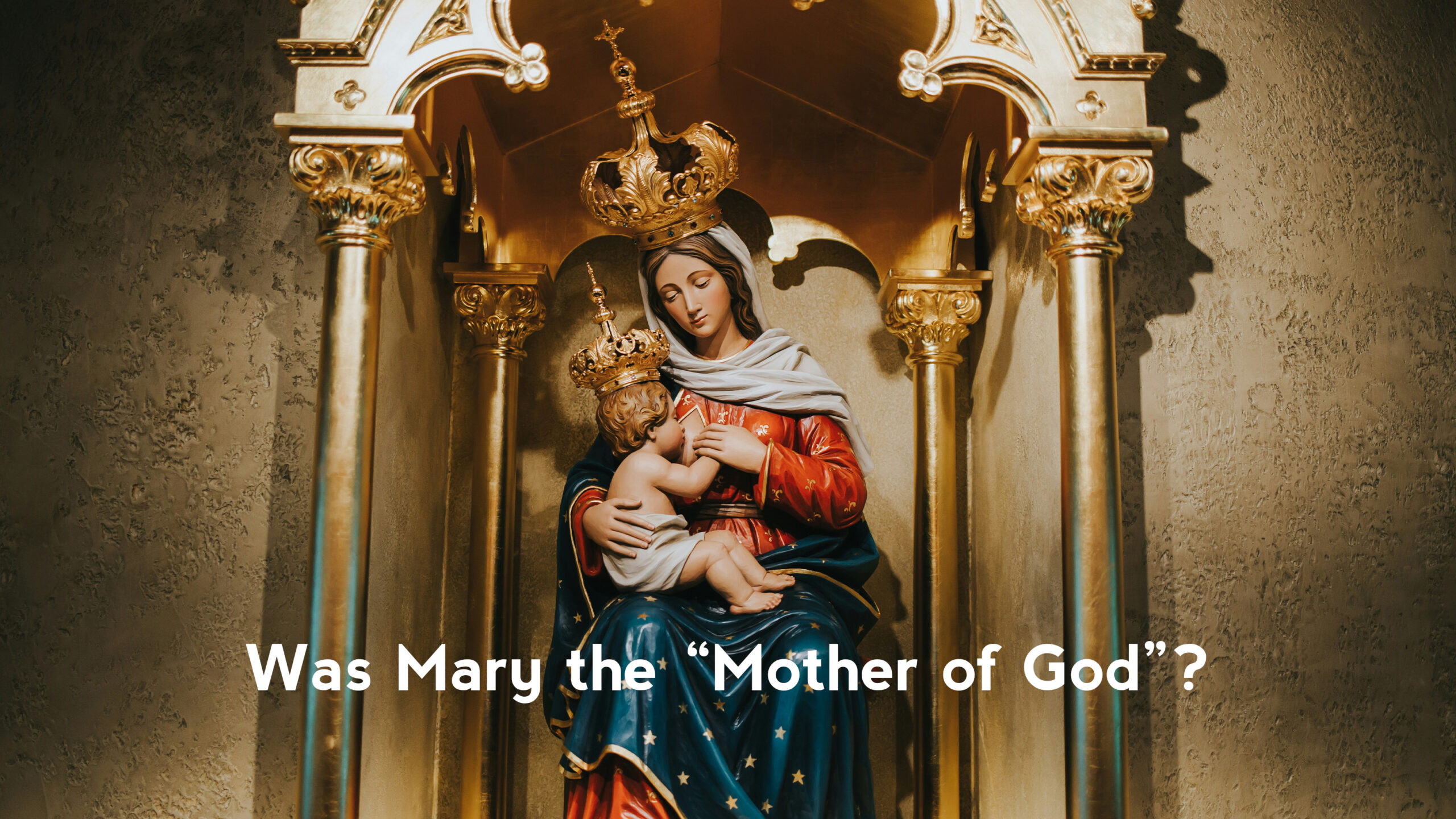This is the third of four articles I’m writing, addressing the doctrines of Catholicism that revolve around their belief that Mary was something more than Protestant Christians claim her to be. The four core dogmas of RCC Mariology include:
- Perpetual Virginity. This is the notion that Mary remained a virgin after giving birth to Jesus, and was never sexually intimate with her husband Joseph, and gave him no children aside from Jesus (who was not biologically Joseph’s son).
- Immaculate Conception. The idea behind this doctrine is that in order for Mary to have been the vessel for bringing God’s Son into the world, she too must have been sinless. Catholics will argue that Mary still needed Jesus as a Savior, but that she was saved from sinning, not saved from sin she committed like everyone else.
- Mary as “The Mother of God”. This doctrine is based on the Greek title theotokos meaning “God Bearer” or “Mother of God”. Protestants generally reject this title, and I’ll discuss why in a later post.
- The Assumption of Mary. This doctrine insists that Mary did not physically die like most people, but that she ascended into Heaven – or, God “assumed” her into Heaven – like Christ, Elijah, and Enoch are described as having experienced.
For today, let’s address Mary as the Theotokos…
This term originated back in the early church…, and has two commonly accepted meanings: God-bearer or Mother of God. Catholics and Orthodox alike enthusiastically embrace the moniker “Mother of God” as both have a much higher view of Mary than most Protestants. The logic seems pretty straightforward:
- Is Jesus God? Yes.
- Is Mary the mother of Jesus? Yes.
- Therefore Mary is the “Mother of God”.
The term Theotokos, and its formal acceptance into Roman Catholic doctrine was affirmed at the Council of Ephesus in 431 AD, which met under the request of Nestorius. Nestorius upheld a different term for Mary – Christotokos, meaning “Mother of Christ” – a term which he felt honored Mary as the rightful mother of our Savior, without eluding to any greater significance. However, the council went against Nestorius, and even condemned his teaching as heresy, namely by Cyril with a series of “anathemas” or condemnations.
The primary basis of this condemnation is lost on us in the modern English, as the Greek term Theotokos more accurately stressed the divine nature of Christ, and the privilege of Mary to bring God into the world through the incarnation of Jesus. Yet in English – and modern Catholicism – the emphasis is placed much more so on Mary. Regardless, it was this emphasis on the divinity of Christ that made Nestorianism seem indefensible, though it never denied the deity of Jesus.
Ironically, it would come a mere 20 years later at the Council of Chalcedon where the two-fold nature of Jesus would be articulated and formalized in church doctrine, known as the “Chalcedon Definition”. This council in 451 AD would identify Jesus as having two natures (human and divine) and that Christ was fully both, and yet united in one person, Jesus Christ. Protestants, Catholics, and Orthodox Christians unanimously affirm this doctrine just as we do that of the Trinity. Just as there is a tangible and intangible nature to every human, there is/was with Christ.
So why do Protestants “protest” the “Mother of God” title for Mary? Because it specifically identifies her as being the progenitor of both the divine and human natures of Christ, making her not only divine, logically, but even more than divine, the creator of the divine. While Mary is the Mother of Christ, and Christ is God, the second member of the Trinity “was in the beginning” with God the Father, co-equal in Creation (John 1:1-4). As such, “Mother” of God is a gross overstatement. So what is the correct view?
Protestants believe that Mary is the mother of the human nature of Christ, and yet the “Word” of God – eternal, co-equal, and co-existent with the Father – is eternal and never “begotten” by Mary at all. His human nature, however, was the result of the virgin Mary giving birth to the human nature, united with the “Word” who was incarnated into one person we know of as Jesus Christ. In summary, she was the vessel through which Jesus Christ came into our world, not the means by which Jesus Christ was created.
Mary deserves all of the honor and favor rightly endowed to her as the mother of our Savior. And yet she was a finite human being through which God entered the human race. By contrast, God the Son existed in eternity past, and was also the Savior of woman He would call His emma on earth (Luke 1:47).




